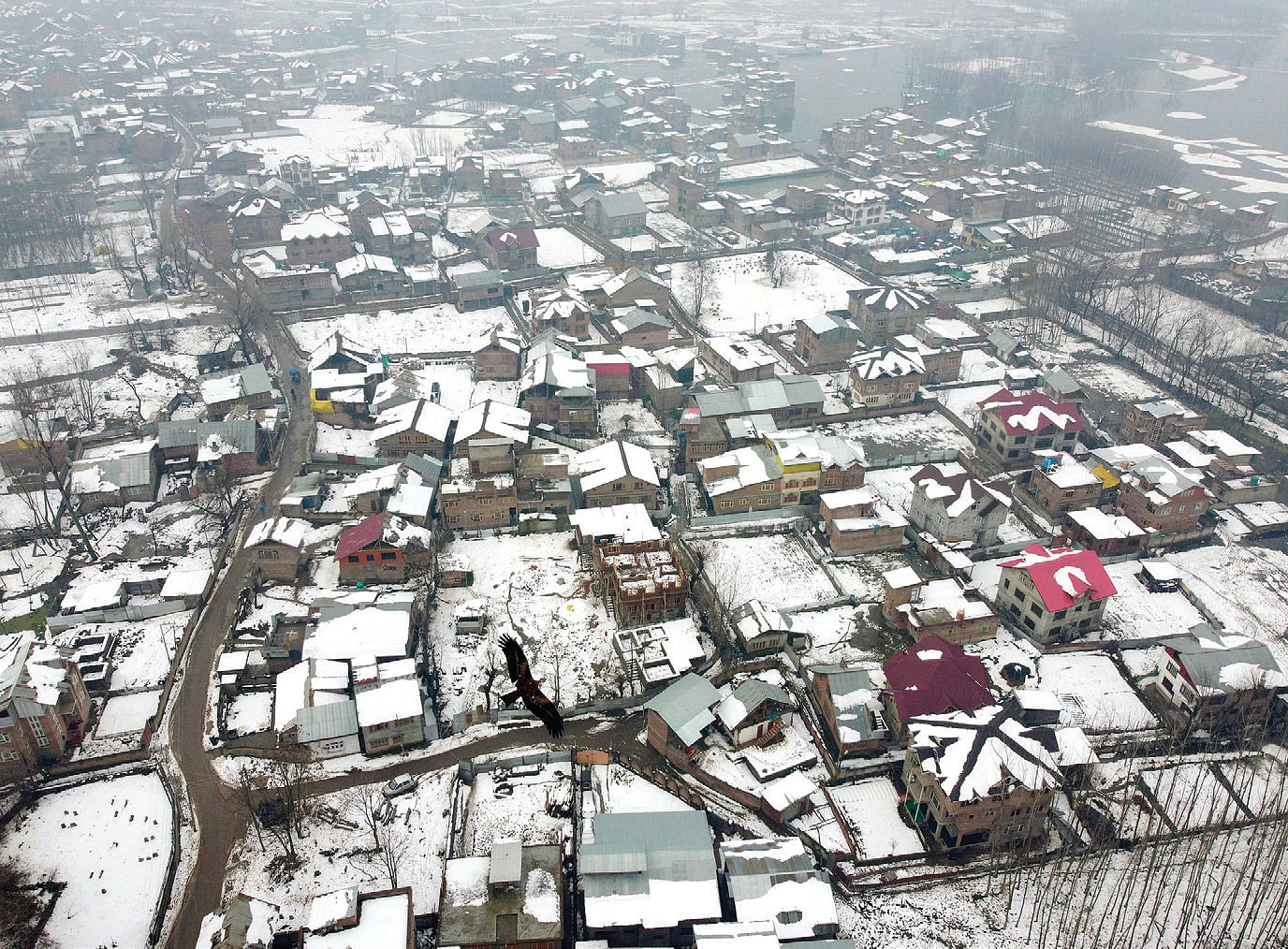Srinagar: The early morning rush at HawalChowk in old city is missing as the market known for huge numbers of non-local workers has gone quiet with majority of labourers fleeing after the spate of civilian killings in Kashmir.
Since October 2, 11 civilians including five non-local labourers have been killed in Kashmir which has created a palpable fear among the non-native workers.
Hundreds of non-local labourers have left Kashmir during the last few days.
“Majority of non-local workers have left Kashmir early due to fear,” said Suresh Kumar, a carpenter from Bijnor, Uttar Pradesh who is also leaving on Monday after he finishes his assigned work.
Kumar’s colleague Bishnoo is eager to leave as his family has received several calls asking him to come back home.
“We have to choose between fear and security. I would prefer to go home where I feel safe,” he said.
The abrupt departure of non-local workers which comprise 80 percent of the labour force in Kashmir has left the construction sector badly affected with labour prices shooting up. The repercussions on the local economy are also being felt.
Ghulam Muhammad Najar, a resident of Soura, who has rented out his house to 15 non-local labourers, said non-local workers were important cogs in the local economy.
“Our economy will cripple if all non-local labourers leave Kashmir. I have told my non-local brothers no one will cause them any harm and they should feel safe but still they are leaving because of fear,” Najar said.
This is apple and rice harvesting season in Kashmir.
Generally, non-local labourers work in agriculture and horticulture fields and in their absence, the agriculturists and horticulturists are facing immense difficulties in getting their routine works done.
“This is the peak apple harvest season. We have to pluck apples and send them to various Mandis. We don’t have a labour force available here. Everything has been halted in Kashmir. I used to earn Rs 7 lakh annually through apple production, but I fear heavy losses as we don’t have labourers available,” said Ali Muhammad, an orchardist.
Officials said 80 percent of the workforce on the project was from outside states like Odisha, Bihar, West Bengal, Jharkhand and Uttar Pradesh.
The fleeing of non-local workers has also impacted other developmental works across Kashmir.
President, Jammu and Kashmir Contractors Coordination Committee, GhulamJeelaniPurza said, “Eighty percent of workers working here are from outside, which means we are mostly dependent on them. However, due to unfortunate incidents they are leaving Kashmir.”
Jeelani who runs a macamadisation plant and takes up government works said that, at his plant, he employs 40 non-local workers who had now left after a spate of killings.
“These workers have been working with me for 15-years. I have groomed them like my own children, but it felt so bad when they informed me that they could not stay as they feared for their lives,” he said. “From agricultural works to construction works, the influx of labourers from outside is visible everywhere. After these gory killings, non-native workers have started leaving for their respective places, which has halted several construction and developmental works.”







